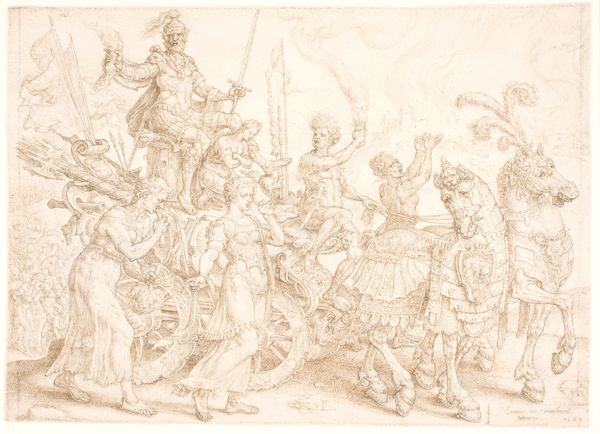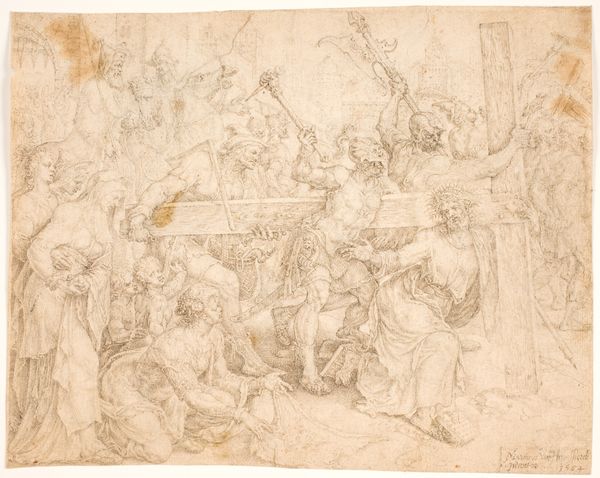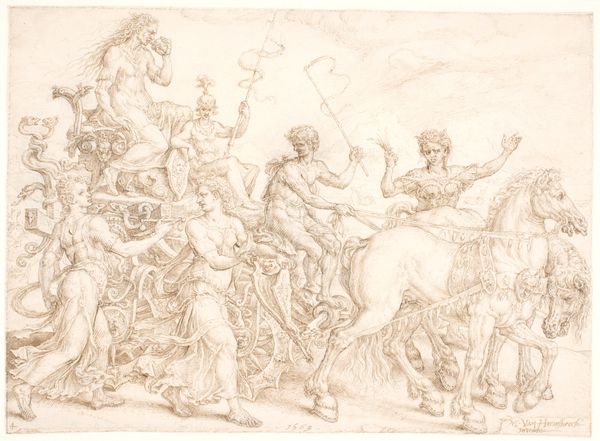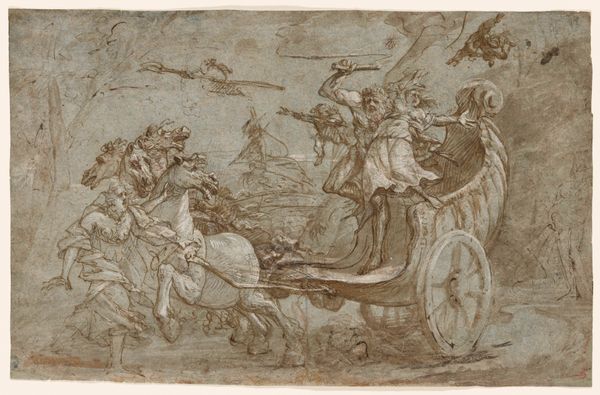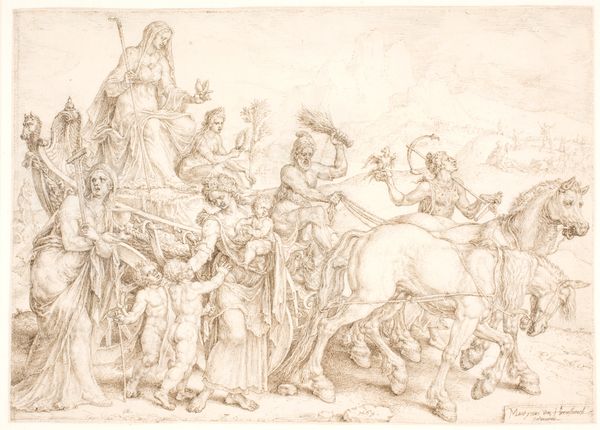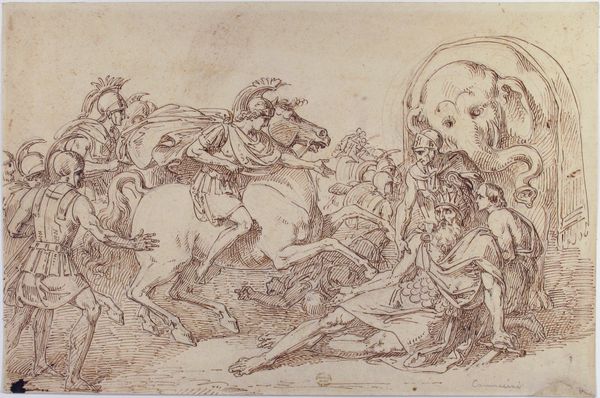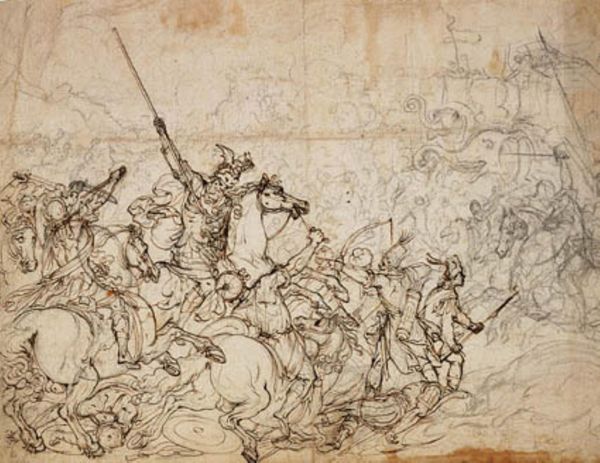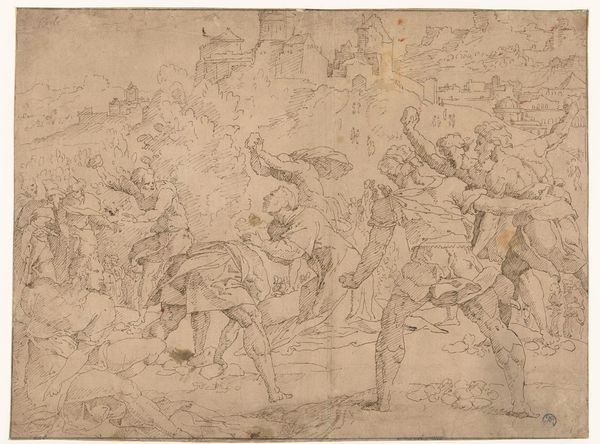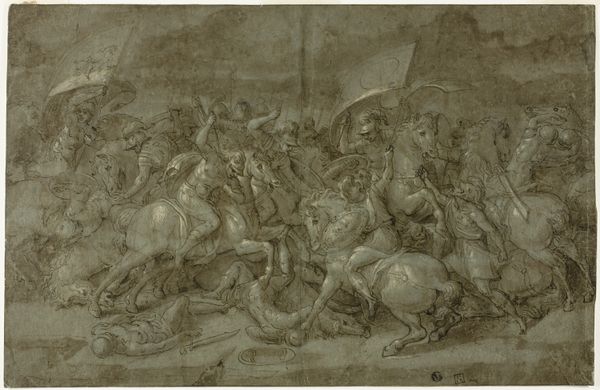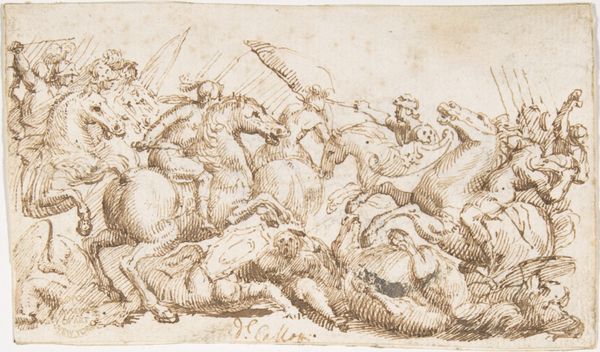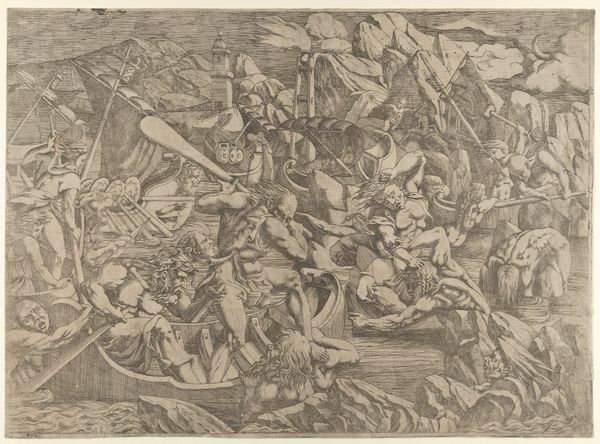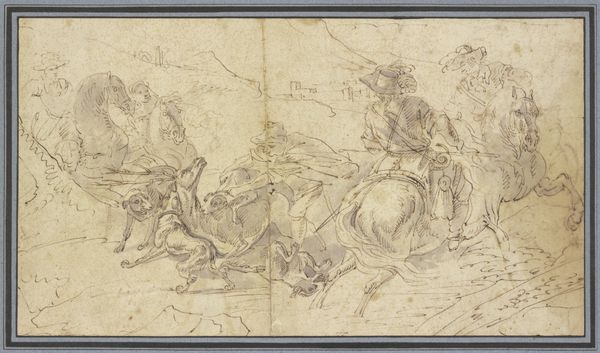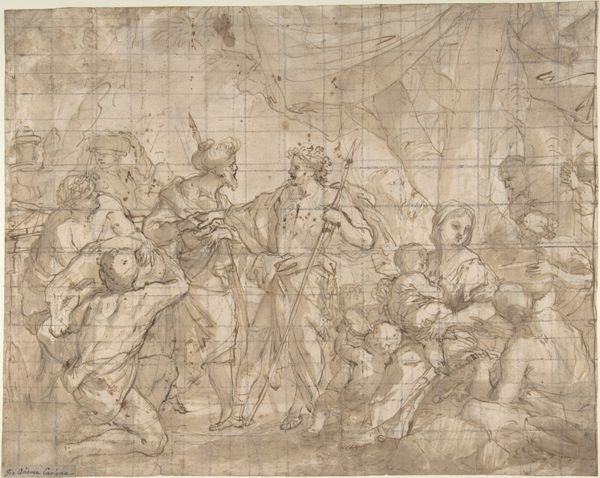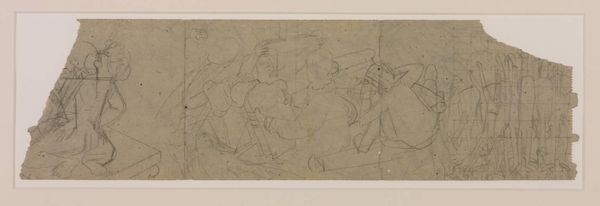
Cavalry Skirmish (recto); Architectural Sketch (verso) 1558 - 1559
0:00
0:00
drawing, paper, ink, chalk
#
drawing
#
ink painting
#
etching
#
figuration
#
paper
#
form
#
11_renaissance
#
ink
#
chalk
#
line
#
history-painting
#
italian-renaissance
Dimensions: 183 × 264 mm
Copyright: Public Domain
Editor: So, this is Giorgio Vasari's "Cavalry Skirmish," created between 1558 and 1559. It’s an ink, chalk, and ink wash drawing on paper. It's chaotic! The composition feels very dynamic and energetic, with all these figures clashing together. How do you interpret this work, focusing on its formal elements? Curator: Indeed, the dynamism you observe stems from a sophisticated manipulation of line and form. Notice how Vasari uses hatching and cross-hatching to create volume and suggest movement. The tightly packed figures generate a visual tension, amplified by the convergence of lines towards a central point, albeit a point of chaos. Does the restricted palette of browns and creams affect how you perceive the scene? Editor: I think it emphasizes the drawing's linear qualities. The lack of color almost makes it feel like a study, focusing on form and composition. Are there other formal devices at play? Curator: Precisely. The layering of figures, created through varied line weights and densities, complicates spatial relationships, challenging the viewer to decipher foreground from background. This intentional ambiguity contributes to the overall sense of frenetic energy and visual excitement. The figures are defined with varied line strokes, what do you think this represents? Editor: It could symbolize a society divided by war, that are not unified in form. Thank you, now I see the complexity created just by lines! Curator: I agree. The beauty of the drawing lies not just in the representation of conflict, but the artist’s construction of form through strategic arrangements of line, tone, and texture, a study in capturing narrative through purely formal means. Editor: It is surprising to think of capturing "narrative" through formal means alone, it’s making me rethink how I perceive lines in art.
Comments
No comments
Be the first to comment and join the conversation on the ultimate creative platform.
